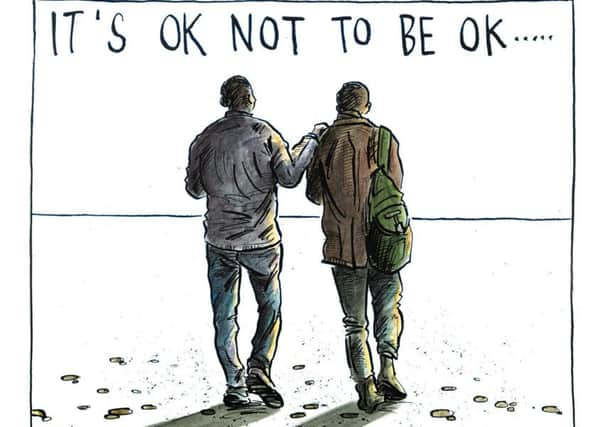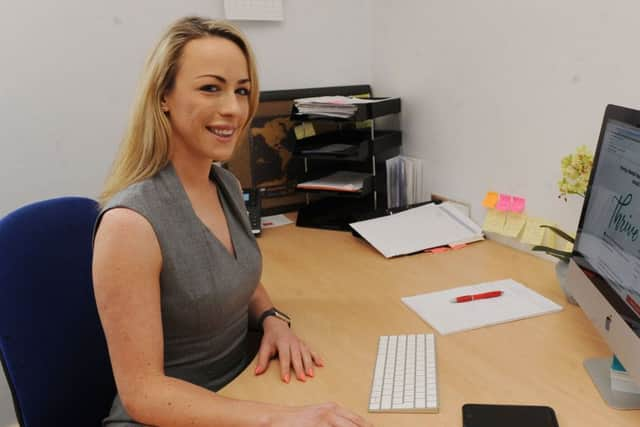Mark Casci: Mental health affects us all in the workplace - let's fight this one together


Mental health overtook musculoskeletal injuries/back pain as the most common reason for absence from work behind the common cold.
While the modern workplace is undoubtedly a stressful environment, I suspect that this change is more a case of people’s willingness to talk openly about mental health problems.
Advertisement
Hide AdAdvertisement
Hide AdWere people being truthful and equipped with the courage and confidence that they could share such information with their boss, I suspect this move would have happened many years ago.
The reality I suspect is that people continue to blame physical ailments when in fact their inability to work is actually caused by mental factors.
As a young man, mental health was something hardly anyone spoke about, with artists the only group of people to speak about their pain.
Like a lot of people my age, my education on mental health matters came from the music world.
Advertisement
Hide AdAdvertisement
Hide AdIan Curtis, Kurt Cobain and Morrissey were frank about their struggles but that was it. The stiff upper pip sensibility, so imbued in the British character, was very much still the order of the day. Expressions such as “pull yourself together” remained common place. The separation of what was happening and reality was vast.


An estimated one in six of us experience a mental health problem in any given week. Mental health is the second largest contributor to long-term disability. The leading cause of death for men under the age of 50 is suicide,
These are statistics which touch us all. Everyone of us is touched by mental health, in itself an extremely broad-ranging term which encompasses everything from anxiety, stress, depression, eating disorders and bipolar personalities.
They say the first step to solving a problem is recognising one exists in the first place.
Advertisement
Hide AdAdvertisement
Hide AdAnd mercifully, more and more people across the country and planet are getting the confidence to open up about problems they may be facing.


No longer is discussing mental health in the public domain the preserve of musicians or artists. Sports stars have displayed commendable bravery in coming forth to discuss their problems. Ricky Hatton, Clarke Carlisle, Frank Bruno etc have all helped to dismantle the stigma around the condition.
However, the world of business remains one of the last frontiers on this most important of subjects.
I applaud the likes of Virgin Money boss Jayne-Anne Gadhia and Lloyds chief executive António Horta-Osório – both of whom have been open about the struggles.
Advertisement
Hide AdAdvertisement
Hide AdHowever, we need more people like Jayne-Anne and António and we need more examples of the insight I gained from a roundtable event I chaired with Barclays last week on this very subject.


I came away from this event feeling hopeful. Those in attendance all had great things to contribute on this and you can read about them on the next page.
At this stage I must salute the tremendous work Jodie Hill at law firm Thrive is doing to change the law to make sure there are mental health first aiders in each workplace.
The overwhelming message however was that every business large and small needs to have their own procedures in place to deal with this.
Advertisement
Hide AdAdvertisement
Hide AdThere is great training and advice available on this. It costs barely anything, certainly a pittance in comparison to the cost of long-term sickness or disability discrimination actions.
Bosses need not be councillors. Your staff don’t want you to solve their problems, they want your support.
Similarly, by embracing flexible working, encouraging a healthier workplace and making it a more welcoming environment you are helping prevent the conditions before they arise. It is not cosmetic, it works.


More than anything, on World Mental Health Day, we must remind ourselves that it genuinely is OK to not be OK.
You are not alone, believe me. There is always someone you can reach out to. And they may be closer than you think.